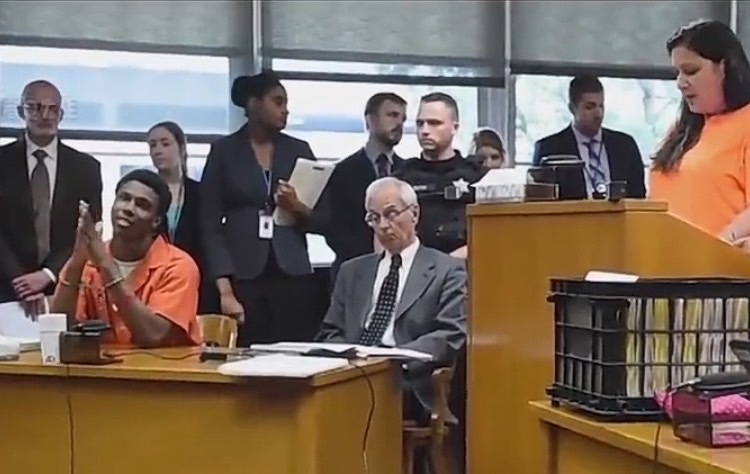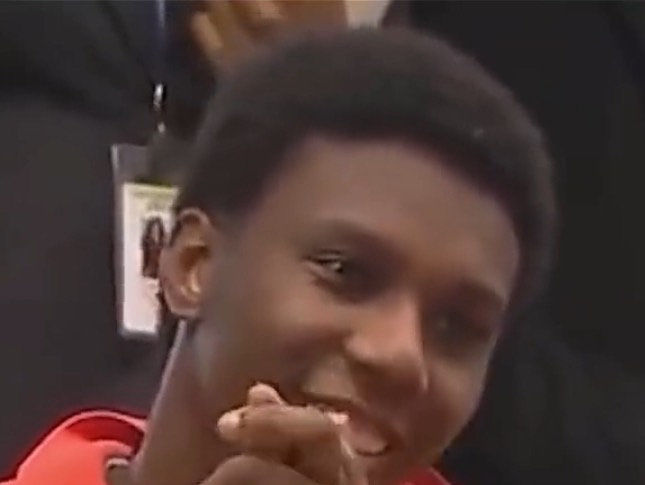台灣少年殺人有免死金牌,日本跟美國也是一樣嗎?
最近在台灣發生一起震驚社會的事件,一名學生因為驅離一位女生,最終導致對方叫來幫忙的人動手砍人,結果受害者被砍十刀致命。這引起對於所謂的少年法是否成為免死金牌的疑慮,讓未成年人在法律面前是否能夠逃避制裁成為討論的焦點。讓我們看看先進國家日本和美國的類似案例。
在日本和美國,未成年人犯下的罪行通常也會受到法律追究,並且通常不會被視為無罪。然而,兩國的法律制度和處理未成年罪犯的方式可能有所不同。
在美國,未成年人犯下的罪行通常會根據其年齡、罪行的性質和嚴重程度,以及州法律的條款而有所不同。在某些情況下,未成年人可能會被判處監禁,但有時也會使用其他形式的處罰,例如社區服務、輔導或其他治療性的措施。此外,一些州可能會將某些重大罪行定義為「成人罪行」,即便是未成年人犯下,也可能面臨成人法院的審判。
在日本,未成年人犯罪的處理也取決於罪行的性質和嚴重程度。日本的刑法對於未成年人犯罪有特殊的規定,並強調少年犯罪的「教育的處遇」。未成年人犯罪的案件通常由家庭法院審理,而未成年人的判決可能包括感化、輔導、社會服務等教育性的措施。然而,對於某些極端嚴重的罪行,未成年人也可能面臨刑事責任。總的來說,無論在日本還是美國,未成年人犯下的罪行通常都會受到法律制度的制約和制裁。
在談到青少年犯罪被處以極刑的案例時,需要注意的是,這樣的案例相對較為罕見,因為大多數國家的法律體系對於未成年人的刑罰都有著特殊的規定,強調教育、感化和康復。以下是一些在日本和美國的案例,其中一些案例涉及極刑:
在2012年,美國阿拉巴馬州的少年艾凡·米勒(Evan Miller)因殺害一名成年男性而被判處終身監禁而無法獲得假釋。這個案例最終上訴至美國最高法院,最高法院裁定將終身監禁判決於未成年人犯罪的案件中視為「殘酷且不尋常」,並宣告此判決為違憲。
1997年,一名未成年的男孩在日本神奈川縣橫濱市的幼稚園襲擊和殺害了兩名幼兒。這名兒童最終被判處極刑。由於是未成年人,名字並未公開。未成年人的刑事記錄通常受到法律保護,有些案例的細節可能會有限制,而這種情況在日本尤為明顯。
近期在美國爆發了一宗殺人犯的審判。一位未成年少年(Danta Wright)因搶劫導致另一位年輕人死亡,他被控非法持槍、搶劫和謀殺等重罪。由於雙方達成認罪協議,因為未成年的關係,他認為很快就能離開法院。在審理期間,他不斷微笑,完全藐視法庭的嚴肅性。與此同時,被害人家屬在庭上不斷流淚並詛咒。而加害人則不僅沒有悔意,還特意反擊,聲稱自己很快就能回家與家人團聚。
法庭上的法官看著一切,表示在過去的23年中他從未拒絕過雙方的和解協議。但面對加害人的冷漠微笑和大笑,仿佛殺人沒事一般,法官做出最終判決,判處他52年刑期,並不得保釋。
Recently, in Taiwan, a shocking incident occurred where a student, due to evicting a female classmate, led to her calling someone for help, resulting in the victim being attacked and fatally stabbed ten times. This has raised concerns about whether the so-called juvenile law serves as a "get out of jail free" card, allowing underage individuals to evade legal consequences, becoming a focal point of discussion. Let's examine similar cases in advanced countries like Japan and the United States.
In both Japan and the United States, crimes committed by minors are typically subject to legal consequences and are generally not treated as exempt from guilt. However, the legal systems and approaches to handling juvenile offenders may differ between the two countries.
In the United States, crimes committed by minors are usually evaluated based on factors such as their age, the nature and severity of the offense, and the terms of state laws. In some cases, minors may face imprisonment, but alternative forms of punishment, such as community service, counseling, or other therapeutic measures, may also be employed. Additionally, certain states may categorize certain serious crimes as "adult offenses," even if committed by minors, leading to trials in adult courts.
In Japan, the handling of juvenile crimes also depends on the nature and severity of the offense. The Japanese Penal Code has specific provisions for juvenile crimes, emphasizing the "educational treatment" of juvenile offenders. Cases involving juvenile crimes are typically processed by family courts, and sentences for minors may include rehabilitation, counseling, and other educational measures. However, for extremely serious crimes, juvenile offenders may still face criminal responsibility.
In general, both Japan and the United States have legal systems that impose constraints and sanctions on crimes committed by minors.
Regarding cases where juvenile offenders receive the death penalty, it is important to note that such instances are relatively rare, as most legal systems around the world have special provisions for minors, emphasizing education, rehabilitation, and recovery. Here are some cases in Japan and the United States, with some details potentially restricted due to legal protection of minors' criminal records:
In 2012, Evan Miller, a juvenile in Alabama, USA, was sentenced to life imprisonment without parole for the murder of an adult male. This case eventually reached the U.S. Supreme Court, which ruled that life imprisonment without parole for juvenile offenders in cases like this was "cruel and unusual" and declared the sentence unconstitutional.
In 1997, a juvenile boy in Japan attacked and killed two toddlers in a kindergarten in Yokohama, Kanagawa Prefecture. The juvenile was ultimately sentenced to the death penalty. Due to being a minor, the name of the child was not disclosed, and details of some cases involving minors may be restricted in Japan.
The recent trial in the United States involves a juvenile, Danta Wright, who committed a homicide during a robbery. He faces charges of illegal possession of a firearm, robbery, and murder. Due to a plea agreement reached by both parties and his status as a minor, he believes he can soon leave the courtroom. Throughout the trial, he continuously smiled, completely disregarding the seriousness of the court. Meanwhile, the victim's family cried and cursed in court. The perpetrator showed no remorse and even countered, claiming he would soon be back home with his loved ones.
The judge witnessing everything expressed that in the past 23 years, he had never rejected a settlement agreement between parties. However, faced with the perpetrator's indifferent smiles and laughter, as if murder was no big deal, the judge made the final decision, sentencing him to 52 years in prison without the possibility of parole.
最近、台湾で学生が女性を排除することが原因で、最終的に彼女が助けを呼ぶことにつながり、被害者が10回刺されて死亡するという社会を驚かせる出来事が発生しました。これがいわゆる少年法が「逃れるための免罪符」になっているかどうかについての懸念を引き起こし、未成年者が法の前で制裁を逃れる可能性に焦点を当てた議論となりました。先進国である日本とアメリカの類似した事件を見てみましょう。
日本とアメリカでは、未成年者による犯罪は通常法的な制裁の対象であり、一般的には無罪と見なされません。ただし、未成年者の犯罪者を扱う法的制度やアプローチは両国で異なる可能性があります。
アメリカでは、未成年者による犯罪は通常、その年齢、犯罪の性質と重症度、および州法の規定に基づいて評価されます。一部の場合では、未成年者は投獄される可能性がありますが、時折、社会奉仕、カウンセリング、または他の治療的な手段など、他の形式の刑罰が使用されることもあります。また、一部の州では特定の深刻な犯罪を「大人の犯罪」と定義し、未成年者であっても大人の法廷で裁かれる可能性があります。
日本では、未成年者の犯罪の取り扱いも犯罪の性質と重症度に依存しています。日本の刑法は未成年者の犯罪に特有の規定があり、少年犯罪の「教育的な取り扱い」を強調しています。未成年者の犯罪の事件は通常、家庭裁判所で審理され、未成年者の判決には感化、カウンセリング、教育的な手段などが含まれることがあります。ただし、一部の極めて深刻な犯罪については、未成年者も刑事責任を問われる可能性があります。
一般的に、日本とアメリカの両方において、未成年者による犯罪は通常法的な制約と制裁の対象となります。
未成年者が死刑を受けるケースについて言及する際に注意すべきは、そのようなケースは比較的まれであるため、ほとんどの国の法的制度が未成年者に対して教育、感化、および回復を重視して特別な規定を設けていることです。以下は、日本とアメリカでのいくつかのケースで、そのうちいくつかは極刑に関連しています。
2012年、アメリカのアラバマ州で未成年者のエヴァン・ミラー(Evan Miller)は成人男性を殺害した罪で終身刑を言い渡され、偽善にならずにはすまされません。このケースは最終的に米国最高裁に上訴され、最高裁は未成年者による犯罪の場合、終身刑は「残酷で異常なもの」と見なし、この判決は違憲であると宣告しました。
1997年、日本の神奈川県横浜市で未成年の少年が幼稚園で2人の幼児を襲撃し殺害しました。この未成年者は最終的に極刑を言い渡されました。未成年者の刑事記録は法的に保護されているため、一部のケースの詳細は制約されている可能性があり、これは日本で特に顕著です。最近のアメリカの審判では、未成年者であるダンタ・ライト(Danta Wright)が搶奪中に殺人を犯しました


照片:微博
- 1
- 2
- 3
- 4
